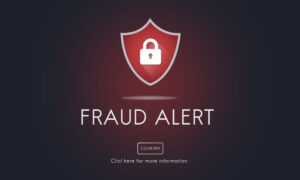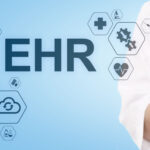HHS-OIG Issues First Special Fraud Alert in Six Years: A Warning for Healthcare Providers Participating in Sponsored Speaker Programs
On November 16, 2020, the Department of Health and Human Services Office of Inspector General (HHS-OIG) issued its first Special Fraud Alert (SFA) in over six years. The SFA addresses speaker programs, particularly those hosted or sponsored by pharmaceutical or medical device companies. Although a casual observer may think this only relevant to the large corporations that dominate these fields, the implications are more pervasive. Any medical practice or healthcare professional (HCP) who prescribes or facilitates the prescription of drugs or use of medical devices should be aware of this SFA and the risks of civil healthcare fraud investigations and criminal prosecutions that it addresses.
Any medical practice or healthcare professional (HCP) who prescribes or facilitates the prescription or use of drugs or medical devices should be aware of this SFA and the risks of civil healthcare fraud investigations and criminal prosecutions that it addresses.
Have you ever seen the Harrison Ford/Tommy Lee Jones version of The Fugitive? (If you haven’t, you probably should.) Remember Dr. Nichols giving the speech near the end about the drug? He was in a hotel banquet room filled with an audience of (presumably) HCPs, pharmaceutical executives, friends, colleagues, etc., drinking wine and eating dinner. This is an example of the kind of scenario HHS-OIG is concerned with – even minus the unpleasantness of falsified research and murder.
The SFA “highlights the fraud and abuse risks associated with the offer, payment, solicitation, or receipt of remuneration relating to speaker programs by pharmaceutical and medical device companies.”[1] More specifically, HHS-OIG is referring to “company-sponsored events at which a physician or other [HCP] makes a speech or presentation to other HCPs about a drug or device product or a disease state on behalf of the company.”[2] HHS-OIG tells us that, for these events, companies “generally pay[] the speaker HCP an honorarium, and often pay[] remuneration (for example, free meals) to the attendees.”[3]
The timing of this SFA seems odd during the COVID-19 global pandemic, a fact which HHS-OIG acknowledges.[4] Are companies hosting or sponsoring these kinds of events now? Perhaps they are with attention to social distancing and mask compliance, or perhaps HHS-OIG wants to discourage companies and physicians from returning to the status quo after the pandemic. In any event, HHS-OIG maintains that “drug and device companies have reported paying nearly $2 billion to HCPs for speaker-related services” in the last three years.[5]
HHS-OIG warns that these speaker programs can implicate the federal anti-kickback statute, 42 U.S.C. § 1320a-7b(b) (AKS). The AKS “makes it a criminal offense to knowingly and willfully solicit, receive, offer, or pay any remuneration to induce or reward, among other things, referrals for, or orders of, items or services reimbursable by a Federal health care program.”[6] Remuneration “includes the transfer of anything of value, directly or indirectly, overtly or covertly, in cash or in kind.”[7] Violating the AKS is a felony punishable by up to 10 years imprisonment, a maximum fine of $100,000, and exclusion from federal healthcare programs. HHS-OIG also may seek civil monetary penalties (CMPs) and the Department of Justice or a whistleblower lawyers may pursue False Claims Act (FCA) penalties and treble damages on all “tainted” federal healthcare claims.
The SFA warns of potential enforcement actions against “all parties to an impermissible ‘kickback’ transaction.”[8] This includes the companies sponsoring such events, the HCP(s) compensated to speak at these programs, and the HCPs who receive dinner, alcohol, or other non-monetary “remuneration” at these events. Accordingly, a speaker can land HCP colleagues he or she invites to a program in the middle of an AKS investigation.[9]
 Why? HHS-OIG “is skeptical about the educational value of such programs,” alleging that they often take place in atmospheres not conducive to real learning, have attendees who have no real reason to attend an educational event, and are likely to affect HCP prescribing habits through the alleged remuneration.[10] HHS-OIG further maintains that HCPs with a legitimate interest in a new drug or device can learn about it from “online resources, the product’s package insert, third-party educational conferences, medical journals, and more.”[11]
Why? HHS-OIG “is skeptical about the educational value of such programs,” alleging that they often take place in atmospheres not conducive to real learning, have attendees who have no real reason to attend an educational event, and are likely to affect HCP prescribing habits through the alleged remuneration.[10] HHS-OIG further maintains that HCPs with a legitimate interest in a new drug or device can learn about it from “online resources, the product’s package insert, third-party educational conferences, medical journals, and more.”[11]
So how can an HCP know whether his or her participation or attendance at a speaking program could result in liability? HHS-OIG believes that “if the basis for a physician’s compensation ‘is your ability to prescribe a drug or use a medical device or refer your patients for particular services or supplies, the proposed consulting [or speaking] arrangement likely is one you should avoid as it could violate fraud and abuse laws.’”[12] But this is a broad standard that would render many industry events verboten. Even HHS-OIG recognizes that “the lawfulness of any remunerative arrangement, including speaker program arrangements, under the anti-kickback statute depends on the facts and circumstances and intent of the parties.”[13] Accordingly, HHS-OIG lists a number of “suspect characteristics” that may make a program more problematic, including
- A lack of substantive information presented at the program;
- Alcohol (particularly free alcohol) or extravagant meals for attendees;
- The program taking place in a restaurant, entertainment venue, or other location not conducive to learning;
- The program being duplicative of other company-sponsored events;
- There have been no recent developments with regard to the subject treatment;
- Repeated participation and/or attendance by the same HCPs at similar events;
- Attendees who do not have legitimate business or educational purpose for going to the program;
- Suspect criteria for speakers and/or attendees, including selection by the host company’s sales or marketing units or selection based on prescribing practices; and
- Remuneration for HCP speakers that is above fair market value for the speaking service or takes into account the volume or value of past business or potential future business.[14]
HHS-OIG says that its SFA “is not intended to discourage meaningful HCP training and education,”[15] but there is not guarantee that HHS-OIG, companies, and HCPs define meaningful in the same way. If you are a corporate executive or HCP considering a speaker program, it may be wise to seek healthcare fraud and compliance or government investigations counsel for advice on any AKS implications related to your participation. That step may protect you, your company, and your colleagues from an expensive government inquiry.
For future updates, subscribe to the SRVH blog and follow us on Twitter. Contact the lawyers in our Government Compliance & Investigations or Healthcare groups with any questions or concerns.
Chris Sabis is a healthcare and procurement fraud lawyer specializing in Government Compliance and Investigations and Litigation.
Photo By Rawpixel.com from Shutterstock
[1] SFA at 1.
[2] Id.
[3] Id.
[4] See id. at 6-7.
[5] Id.
[6] Id. at 2 (emphasis added).
[7] Id. at 2-3 (emphasis added).
[8] Id. at 3.
[9] See id. at 4.
[10] Id. at 3.
[11] Id. at 4.
[12] Id. at 4-5 (citing A Roadmap for New Physicians, Avoiding Medicare and Medicaid Fraud and Abuse, HHS-OIG, 22 (Nov. 2010); OIG Compliance Program for Individual and Small Group Physician Practices, 65 Fed. Reg. 59434 (Oct. 5, 2000.
[13] Id. at 5.
[14] Id. at 5-6.
[15] Id. at 6.





